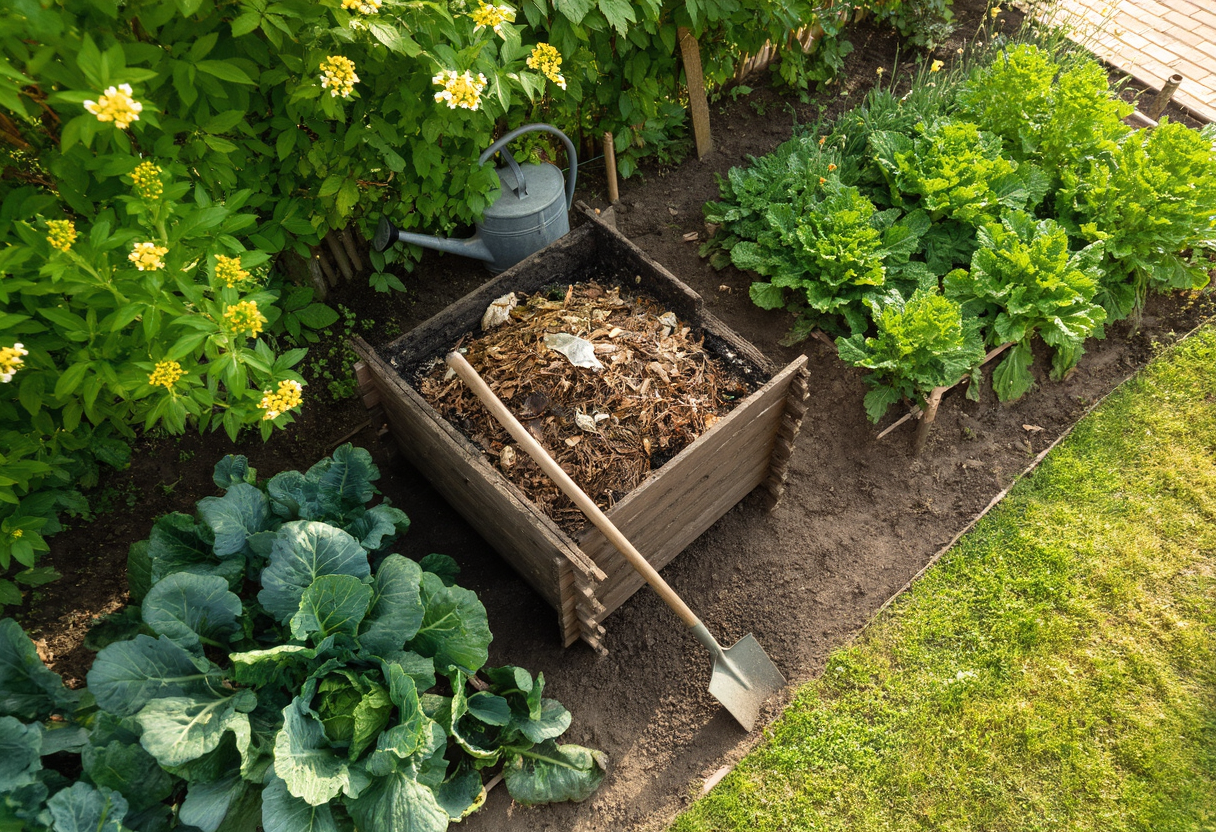Revolutionize Your Garden: Home Composting Solutions to Transform Waste into Gold!
Home Composting Solutions are more than just eco-friendly methods; they represent a shift toward sustainable living. This article delves into practical methods and unique insights into creating a thriving compost environment, transforming your culinary scraps into nutrient-rich soil. Discover how these solutions not only benefit your garden but also play a crucial role in reducing landfill waste and promoting environmental consciousness.
Understanding Home Composting Solutions
Home Composting Solutions have emerged as a vital component in environmental sustainability. By repurposing kitchen waste, garden trimmings, and other organic materials, homeowners can create nutrient-rich compost that nourishes their gardens. This practice not only minimizes harmful waste in landfills, but it also enhances soil quality and promotes biodiversity. Considering the global urgency surrounding waste management, understanding the principles of efficient composting is crucial. With various methods available, including traditional compost bins, worm composting, and even Bokashi systems, each offers unique benefits tailored to individual preferences. These Home Composting Solutions empower people to take charge of their waste and contribute positively to the environment.
The Benefits of Home Composting Solutions
Integrating Home Composting Solutions into your routine comes with a myriad of benefits. Firstly, they reduce the amount of organic waste sent to landfills, thereby decreasing methane emissions—a potent greenhouse gas. Secondly, compost improves soil structure, moisture retention, and nutrient levels, promoting healthier plant growth. Furthermore, it's a cost-effective alternative to chemical fertilizers, allowing gardeners to harness nature's power. By transforming waste into organic material, composting also supports the circular economy, aligning individual practices with global sustainability goals. Another aspect worth mentioning is the opportunity for educational engagement, where families, especially children, can learn about nature's cycles and the importance of waste reduction.
Practical Steps for Implementing Home Composting Solutions
Implementing Home Composting Solutions can be straightforward with clear steps. Start by choosing a suitable compost bin or area in your yard that receives adequate sunlight, which expedites the composting process. Gather your organic waste—fruit and vegetable scraps, coffee grounds, eggshells, and yard waste are ideal. It's essential to maintain a balance between 'greens' (nitrogen-rich materials) and 'browns' (carbon-rich materials) to achieve optimal composting results. Turning the compost regularly aerates the pile, promoting faster decomposition. Finally, monitor the moisture level; a damp environment facilitates microbial activity crucial for breaking down materials. By following these steps, you can effectively utilize Home Composting Solutions to enrich your garden while doing your part for the planet.
Common Pitfalls and How to Avoid Them
While Home Composting Solutions are beneficial, several common pitfalls can hinder the process. Overloading the compost bin with meat, dairy, and oils can create odors and attract pests. It’s crucial to stick to a plant-based waste approach for successful composting. Neglecting the aeration process can also lead to compacted, smelly piles. Adequate turning and stirring will prevent this issue. Additionally, maintaining the right moisture level is essential; too much water can lead to sogginess while too little can slow down decomposition. By being aware of these common errors, individuals can ensure their composting efforts are both effective and efficient.
Exploring Innovative Home Composting Solutions
Today's technological advancements have ushered in innovative Home Composting Solutions that cater to urban environments and limited spaces. For instance, countertop composters or electric composting units can process scraps in a matter of hours, making composting accessible even for apartment dwellers. Additionally, mobile applications offer tips and track composting progress, integrating modern technology with traditional practices. Such innovative methods not only simplify the composting process but also encourage more people to participate in sustainable practices. Whether you’re a novice or seasoned composter, exploring these new tools can enhance your composting experience.
Conclusion: Embracing Home Composting Solutions for a Sustainable Future
In conclusion, adopting Home Composting Solutions is a profound step toward environmental stewardship and sustainability. By minimizing waste, enhancing soil health, and promoting ecological awareness, composting plays a vital role in our communities. As we navigate the challenges of waste management, these solutions provide a practical and impactful approach to creating a greener future. Each individual's effort can contribute to a larger movement towards environmental resilience—transforming kitchen waste into a valuable resource. Embracing these practices not only benefits us but also helps safeguard the planet for future generations.
